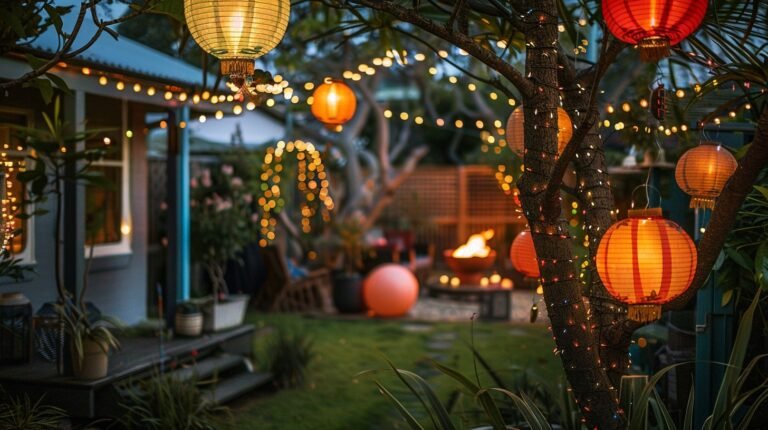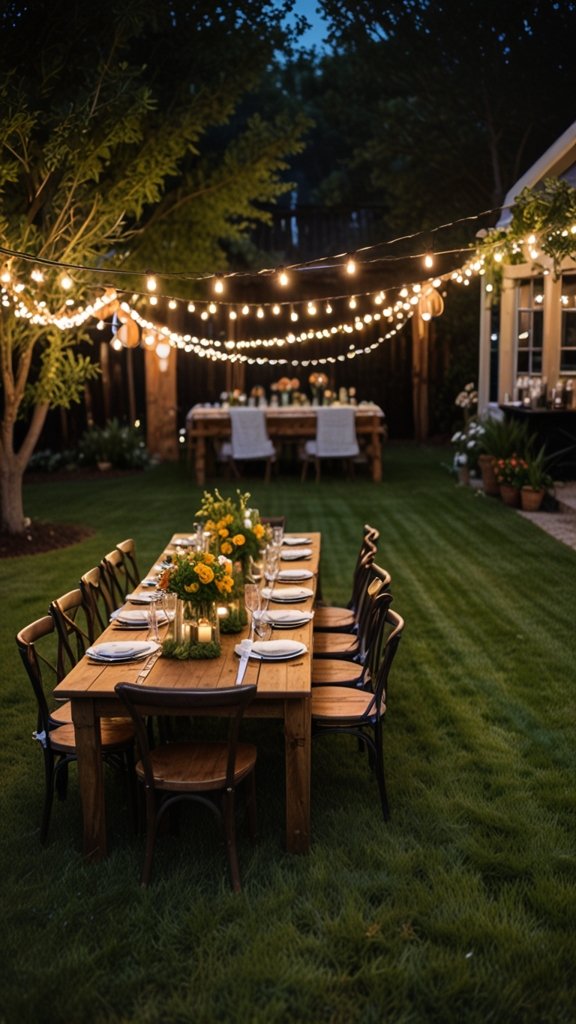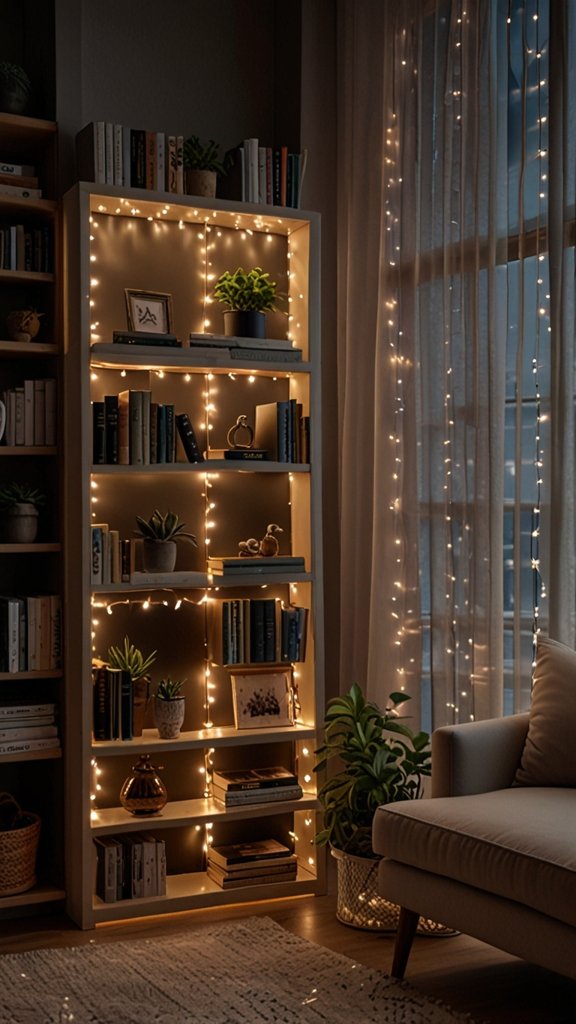Picture this: you’re hosting an evening garden party, and your guests can’t stop admiring how your prized Japanese maple glows against the twilight sky or your stone fountain creates mesmerizing shadows in the gentle evening light. I’m excited to share my expertise on transforming your garden into a magical nighttime retreat using Solar Lights to Highlight Garden Focal Points!

What Are The Simple Ways To Use Solar Lights to Highlight Garden Focal Points?
Garden focal points are the stars of your outdoor space – they’re the elements that naturally draw the eye and create visual interest. When properly illuminated, they become even more captivating after sunset.
As a landscape designer with 6 years of experience, I’ve seen firsthand how solar-powered lighting can completely transform a garden’s nighttime appearance while being environmentally conscious.
Understanding Garden Focal Points
Natural focal points in your garden might include:
- Specimen trees with interesting bark or form
- Water features like fountains or ponds
- Garden sculptures or art installations
- Architectural elements like pergolas or gazebos
- Unique plantings or container arrangements
The Power of Solar Lighting
Solar-powered garden lighting offers numerous advantages:
- Zero energy costs
- Environmentally friendly operation
- Easy installation without electrical wiring
- Modern LED technology for bright, reliable illumination
- Flexible placement options
Choosing the Right Solar Lights for Your Garden Features
Understanding Light Types
Different garden features require different lighting approaches. Here’s how to match the right solar light to each element:
For Trees and Large Shrubs:
- High-powered spotlights (100+ lumens)
- Adjustable heads for precise targeting
- Warm white color temperature (2700-3000K)
For Water Features:
- Submersible lights for underwater effects
- Color-changing options for dynamic displays
- Weatherproof rating of IP68 or higher
For Pathways and Borders:
- Path lights with wide beam spread
- Medium brightness (50-75 lumens)
- Stake-mounted for easy installation
Strategic Placement Techniques for Maximum Impact

The Basic Principles
Creating effective garden lighting involves three key techniques:
- Uplighting: Positioning lights at ground level to illuminate features from below
- Downlighting: Mounting lights above to create natural moonlight effects
- Cross-lighting: Using multiple lights to eliminate harsh shadows
Distance and Angle Guidelines
- Position uplights 6-12 inches from the base of features
- Maintain a 45-degree angle for optimal illumination
- Space path lights 6-8 feet apart for consistent coverage
Creative Design Ideas for Solar Garden Lighting
Layer Your Lighting
Create depth and interest by combining different lighting techniques:
- Background Layer:
- Uplight large trees
- Illuminate boundary walls
- Highlight architectural features
2. Middle Layer:
- Accent medium-sized shrubs
- Illuminate garden structures
- Light water features
3. Foreground Layer:
- Path lighting
- Border illumination
- Small feature lighting
Seasonal Lighting Strategies
Adjust your lighting approach throughout the year:
Spring
- Highlight emerging foliage
- Illuminate spring bulb displays
- Accent flowering trees
Summer
- Create evening entertainment spaces
- Illuminate outdoor dining areas
- Light-up water features
Fall
- Emphasize autumn colors
- Highlight ornamental grasses
- Illuminate late-blooming perennials
Winter
- Focus on architectural elements
- Light up evergreen specimens
- Create dramatic shadow effects
Installation and Maintenance Tips
Proper Installation Steps
- Map your garden’s sunny areas
- Test light positions before final installation
- Clean the solar panel surfaces regularly
- Adjust angles seasonally
- Check battery performance monthly
Troubleshooting Common Issues
- Clean solar panels regularly
- Replace batteries every 1-2 years
- Adjust positions for maximum sun exposure
- Protect from lawn maintenance equipment
- Store removable lights during harsh weather
Frequently Asked Questions
How long do solar garden lights typically last?
Quality solar garden lights can last 2-3 years with proper maintenance. The LED bulbs themselves can last 10+ years, but batteries and solar panels may need replacement sooner.
Can solar lights work in shaded gardens?
Yes, but they require careful placement. Position the solar panels in sunny spots, even if that means running longer cables to the lights themselves.
What maintenance do solar garden lights need?
Regular cleaning of solar panels, occasional battery replacement, and seasonal adjustments are the main maintenance requirements. It’s also important to check for damage after severe weather.
How many lumens do I need for garden focal points?
For major focal points like trees or large sculptures, aim for 100-200 lumens per light. Smaller features may only need 50-75 lumens for effective illumination.

Create Your Nighttime Garden Paradise
Transform your garden into an enchanting evening retreat by strategically illuminating your focal points with solar lights. Start with one or two key features and gradually expand your lighting design. Remember, successful garden lighting is about creating layers of light that work together to showcase your garden’s best features.
Ready to get started? Begin by identifying your garden’s main focal points and planning your lighting strategy. With these solar lighting techniques, you’ll create a sustainable, beautiful nighttime garden that you can enjoy all year round!
[Editor’s Note: This article has been updated for 2024 to reflect the latest solar lighting technologies and techniques.]



